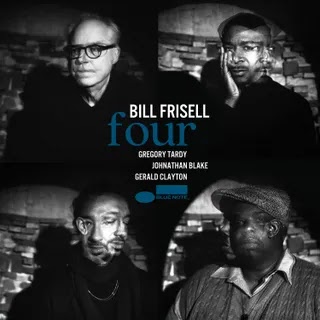The former Gil Scott-Heron collaborator’s first solo album in over 20 years is forged in the vein of his work with the late poet, and rewrites some unfair narratives.
It’s been over five decades since teenage piano protégé Brian Jackson first crossed paths with a thin bohemian beatnik named Gil Scott-Heron at Lincoln University, where the man who would go on to become a counterculture icon had a collection of poems to his name, but no record deal. Recognizing a kindred spirit, Scott-Heron had the prescience to invite Jackson to perform and co-write large sections of his first studio album, Pieces of a Man. That stone-cold classic was the first of nine LPs the two recorded together over the next nine years. Jackson received joint billing on the majority of these albums, but the credit didn’t make him one-tenth as beloved. Too often, public perception of their work has always been in line with the cover of their brilliant 1977 record Bridges: Scott-Heron, the star, in the foreground; Jackson in the back, a facilitator of Gil’s troubled genius.
The partnership fractured in the early 1980s: Scott-Heron eventually slipped into a creative wilderness and struggled with addiction, by which time he had taken Jackson’s name off their publishing rights, denying him years of royalties. They would eventually reconcile, but when Scott-Heron died in 2011, Jackson had spent much of the intervening years working as an information technology specialist at New York City’s Administration for Children’s Services. For a time, Jackson was angry. But leaving his day job has helped bring him back to his first love. “I had all this music in my head,” he recently told The New York Times. “I tried everything. And the only thing that worked was actually retiring.” This Is Brian Jackson is his first solo effort in over 20 years, a piece forged in the vein of his output with Scott-Heron that seeks to rewrite some unfair narratives.
This time, it’s Jackson who required a trusted collaborator. He found one in Daniel Collás, of the New York psychedelic soul collective Phenomenal Handclap Band, who serves as a producer and co-writer of five songs. On first listen, it’s difficult to determine the direct input Collás had on the sound of This Is Brian Jackson, which most closely resembles Jackson’s Bridges era: thick keyboards, analog synthesizers, funky guitars, jazz flutes. Hear how heavy the band squawks on the instrumental “C’est Cette Cométe,” or the satisfying funk of “Little Orphan Boy,” one of two songs here (alongside “Hold On”) that incorporate parts recorded in the 1970s on the revolutionary, room-sized TONTO synth. But easy to perceive are Collás’s bongos, congas, and timpani that underpin Jackson’s play and help propel the arrangements.
Opener “All Talk” stirs into life with the sound of Collás rapping the rawhide of his percussion instrument in a Latin rhythm. From there, Jackson’s Fender Rhodes ushers in some slick grooves and, in a wonderful voice—smaller than Scott-Heron’s beckoning baritone, but with no less conviction—delivers an exciting melody as he preaches social justice, peace, and love as the great healer. Similarly, “Force of Will” is dedicated to the inextinguishable human spirit in the face of adversity. Jackson may be speaking in broad generalities rather than directly engaging in specific modern political and social movements, but the nostalgic sound and undimmed energy evokes the activism of his youth: The heart of a radical still beats inside his chest.
The wingspan of This Is Brian Jackson stretches across history and continents. “Mami Wata,” a traditional composition that honors African water spirits, opens with chants indigenous to West Africa before sounds reminiscent of the Afro blues of 1960s and ’70s Nigeria and Ghana emerge. “Path to Macondo / Those Kind of Blues” is Jackson in conversation as he speaks directly to his listeners to redefine the relationship between slave songs and 20th-century blues music. “So don’t tell me that all the slave songs were about being sad and dejected and depressed, you know, and that’s where the blues came from, because that was just part of it,” says the 69 year old, the casual nature of the chat not dissimilar to parts of his late collaborator’s performance on I’m New Here. Like Scott-Heron’s last classic, This Is Brian Jackson is a salient reminder that great artists, no matter where they are on their journey, can rediscover themselves.
















0 comments:
Post a Comment